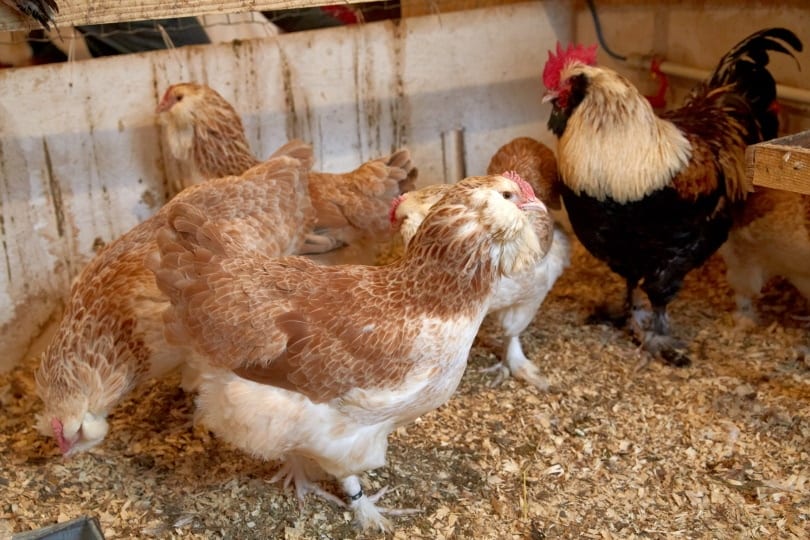Chickens are fun creatures to care for, as they tend to take care of most of their own needs. All chicken breeds are unique when it comes to size, color, egg production, and personality. So, you shouldn’t expect the Faverolles chicken to be like a Leghorn or Orpington chicken.
Faverolles chickens are not as well-known as many other breeds, but they are excellent choices for farms and backyard breeders and have established a presence in many parts of the world. These chickens deserve a bit of attention, so we put together this comprehensive guide about this breed so you can learn all there is to know about them.

Quick Facts About Faverolles Chickens
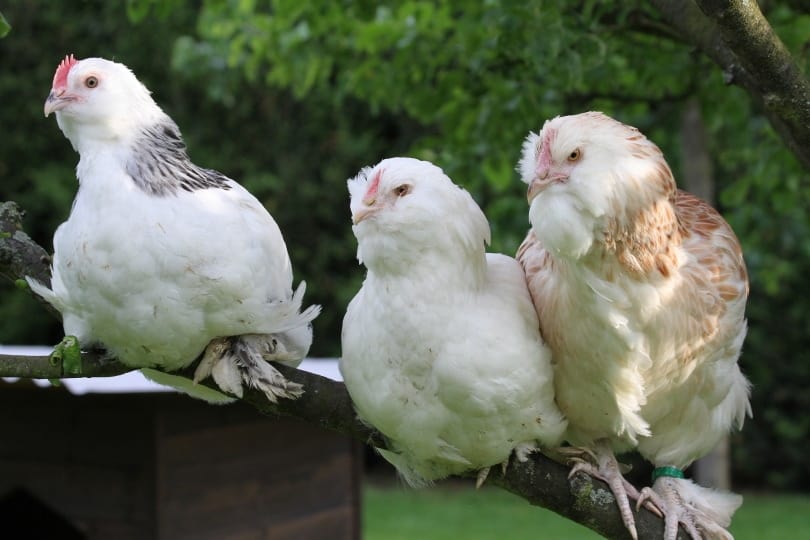
| Breed Name: | Gallus gallus domesticus |
| Place of Origin: | France |
| Uses: | Egg and meat production |
| Rooster (Male) Size: | 8 pounds |
| Hen (Female) Size: | 6.5 pounds |
| Color: | White, black, buff, salmon |
| Lifespan: | 5–7 years |
| Climate Tolerance: | Cold hardy |
| Care Level: | Moderate |
| Egg Production: | About 240 per year |
| Temperament: | Curious, calm, independent, friendly |
Faverolles Chicken Origins
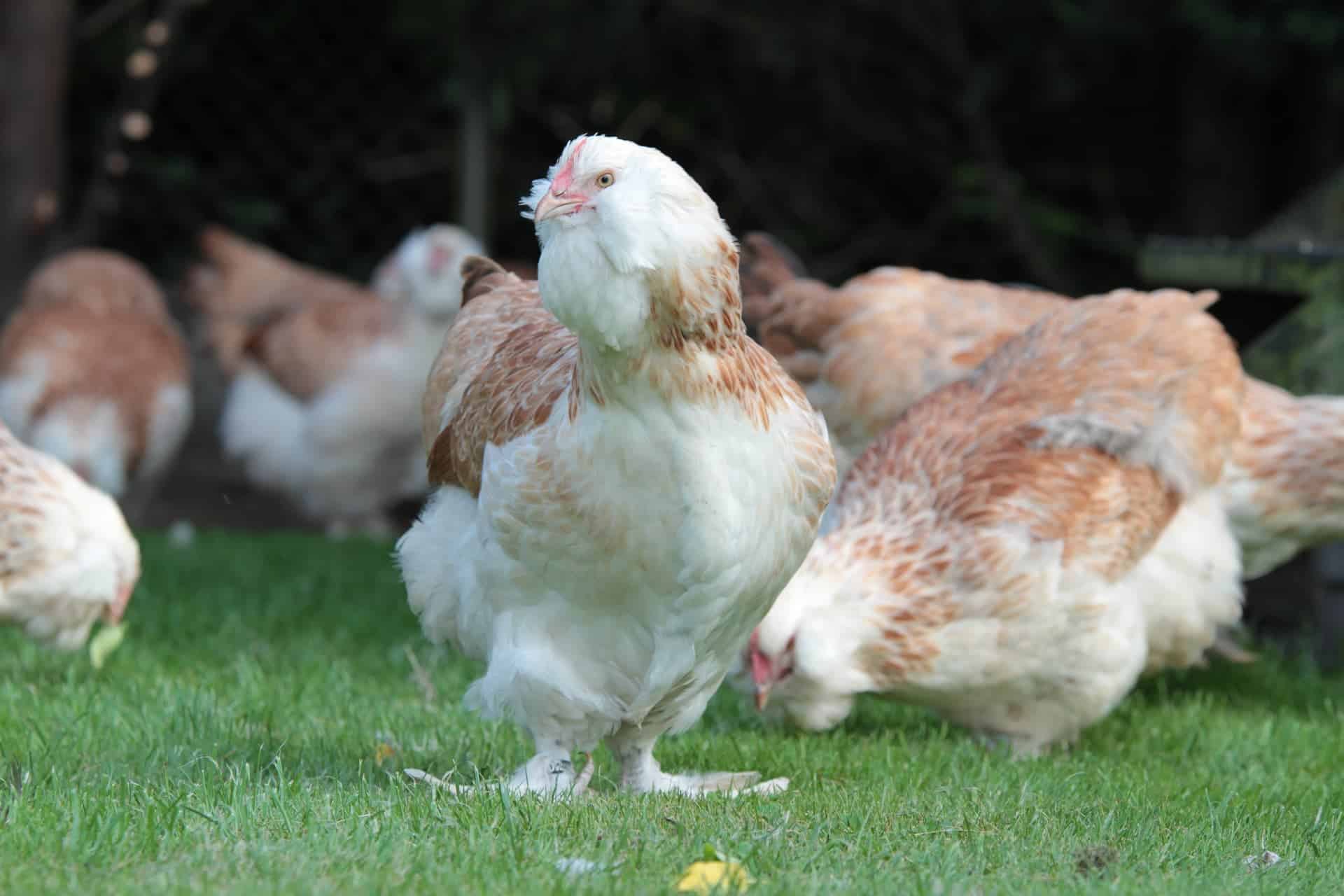
The Faverolles chicken derived its name from where which it originated, just south of France in what’s referred to as the Eure-et-Loire region. These chickens came into existence sometime in the 1800s and have been going strong ever since. Faverolles chickens were created by mixing several different chicken breeds until the desired attributes were achieved.
Some of the breeds believed to have been used to create the Faverolles chicken are the Flemish, French Rennes, Houdan, and Cochin. In the 1900s, Faverolles chickens made their way to the United States, where they eventually became recognized by the American Poultry Association (APA) for their white and salmon coloring.

Faverolles Chicken Characteristics
The Faverolles chicken is a dual-purpose bird, meaning that it is raised for both eggs and meat. They are energetic, curious, and adaptable creatures that get along well with humans, even young children. These alert birds will squawk to let everyone around know when a strange animal is getting close.
The hens are known for being good egg layers, as they can lay about 240 eggs each year. A small flock can feed a family all year long. These birds are excellent foragers and can easily supplement whatever food they receive from their caretakers. While they like to roam, these chickens also do well in coops, where their movement is limited.
While outgoing and adventurous, the typical Faverolles chicken is susceptible to bullying from other chicken breeds. If left to fend for itself among other breeds, particularly larger ones, it’s prone to injuries and even death. Therefore, it’s a good idea to keep these chickens in their own yard or enclosure, separate from other breeds that could harm them.
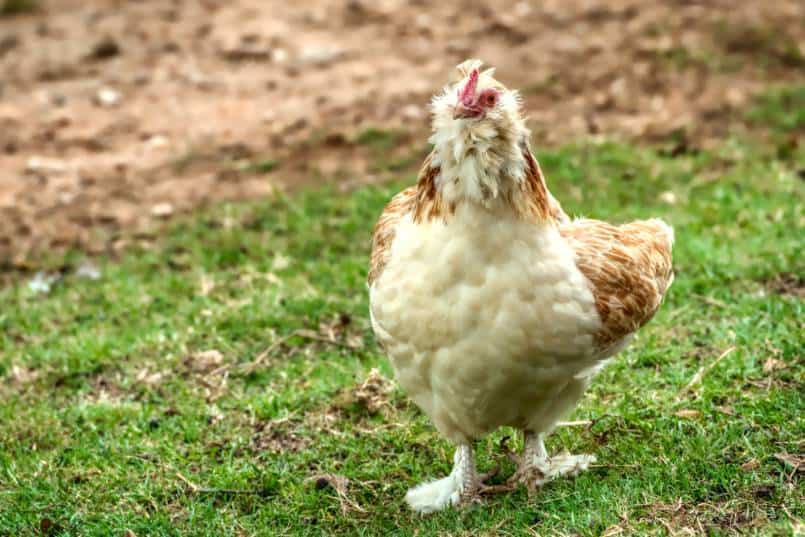
Uses
Faverolles chickens are raised to lay eggs and provide meat for the table. Some chickens are raised specifically for egg-laying, so males are culled while still babies. Others are bred strictly for meat consumption; in which case, all chickens are allowed to grow and fatten before being culled for the market.
Some facilities raise Faverolles chickens for both egg-laying and meat. The females are culled after optimal egg-laying dwindles, and males are culled when the market weights are reached. Some lucky chickens are raised in no-kill backyard farms, where they serve to lay eggs and reproduce, but otherwise, they are free to live out their lives until natural death takes place.
Appearance & Varieties
This chicken breed is proud and outgoing, so it tends to interact with its surroundings and other beings with an outward chest and upright head. These birds come in a large variety of colors, but only white-and-salmon-colored birds are recognized by the APA. These birds have strong legs, stout yet agile bodies, and fun personalities that make them fun to keep around the farm or backyard garden area.
They weigh in at about 6.5 pounds as females and 8 pounds as males when they are fully grown. Faverolles chickens are curious yet laidback, so they can get along with a large variety of farm animals, including rabbits, ducks, goats, sheep, pigs, and cows. They can even get used to being around protective dogs living near them.
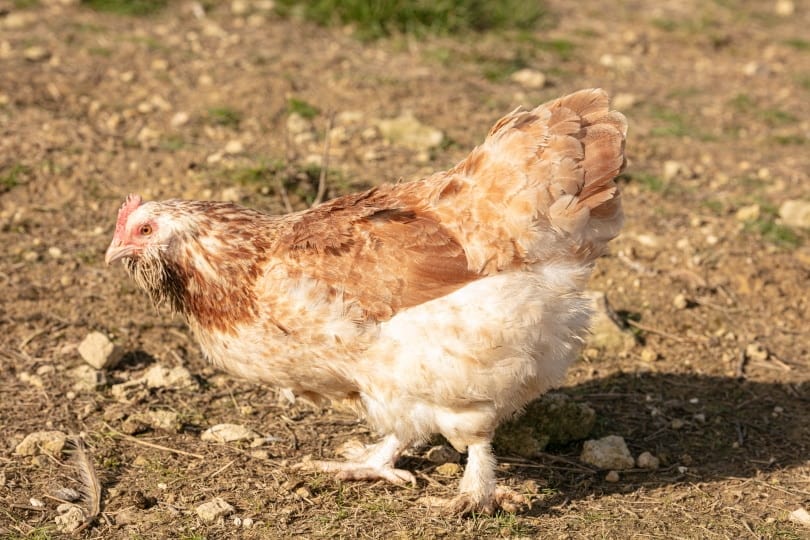
Population, Distribution & Habitat
As dwellers of backyard farms and large-scale farming operations, it is almost impossible to determine how many Faverolles chickens are in existence around the world today. About 513 million chickens are being raised at any given time in the United States alone, a portion of which is surely Faverolles chickens. Worldwide, billions of chickens are being raised for eggs and meat. Even if just a small percentage of them are Faverolles chickens, there are likely millions of them living around the world, producing eggs and meat for human consumption.

Are Faverolles Chickens Good for Small-Scale Farming?
The short answer is absolutely yes! Faverolles chickens are great for small-scale farming. Since they have a tendency to be bullied, if they are spending time with other chicken breeds, they do require small habitats that are well supervised. But since these chickens are awesome egg layers, they can be kept exclusively by small-scale farms where bullying will never be a problem.
They can still bring in a significant amount of resources to sell that should increase profit margins for any farm with limited space. Faverolles chickens are not only good for meat and eggs, but they can also bring joy to the family living on the farm due to their playfulness and curiosity.
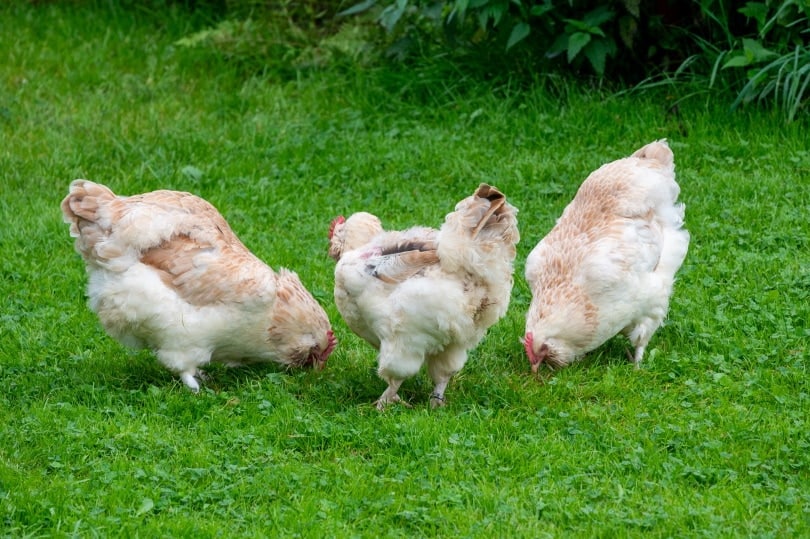

In Conclusion
Faverolles chickens are adorable creatures that can provide joy along with nutrition and sustenance. These chickens are great egg layers, and they get big enough to produce a decent amount of meat. Their gentle natures and curious personalities also make them great pets even if they don’t produce eggs or get big enough to eat.
Featured Image Credit: Maryna Pugachova, Shutterstock
